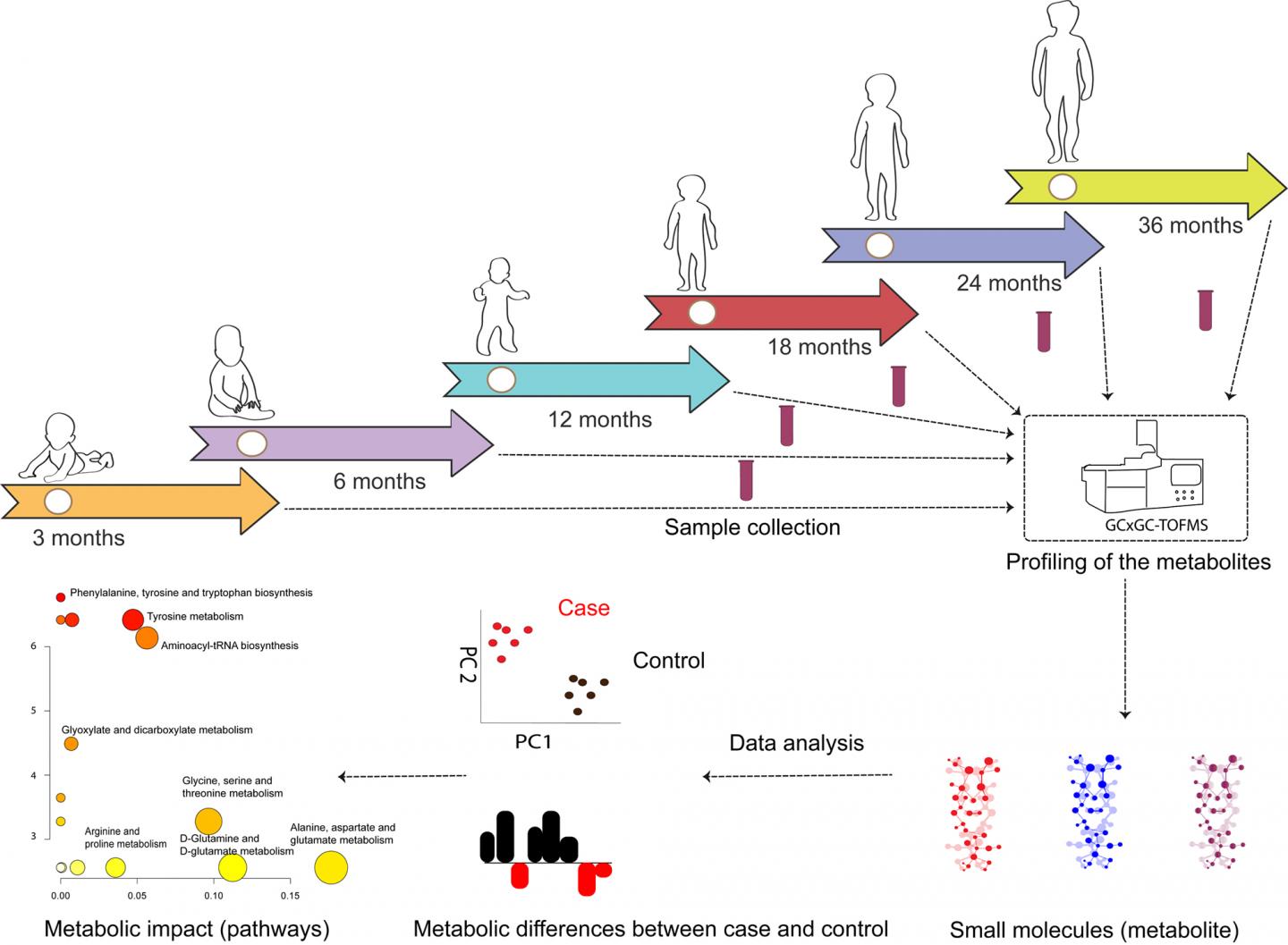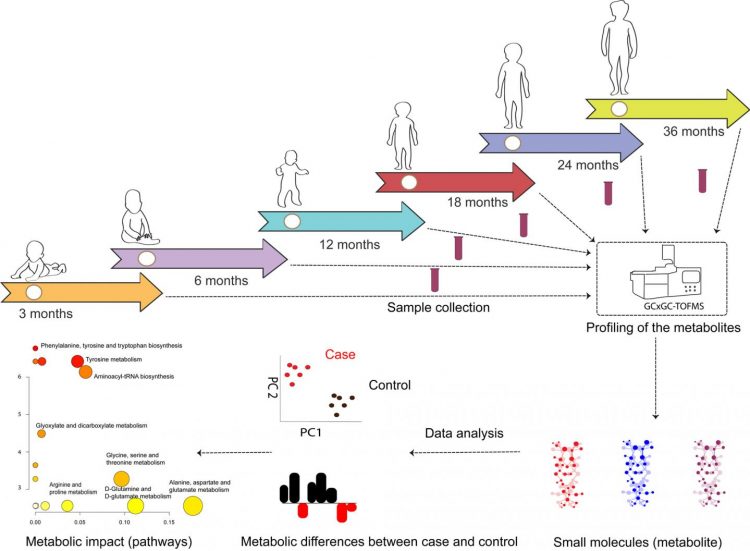
Credit: Image by: University of Turku
Researchers from the Turku Bioscience Centre in Finland have found changes in molecules in the blood that might be new markers of type 1 diabetes. New findings may help understand the early pathogenesis of the disease.
Finland has the highest recorded incidence of type 1 diabetes in children younger than 15 years, and the global prevalence is continuously increasing among the children in many developed countries.
Using state-of-the-art metabolomics approach, researchers from the Turku Bioscience Centre, a joint unit of the University of Turku and Åbo Akademi University, found changes in circulating molecules in the blood, i.e. metabolites, already before the initiation of islet autoimmunity. The findings may have important implications in the search of early markers of type 1 diabetes and for understanding the disease pathogenesis.
The study was part of the extensive Finnish DIPP cohort study.
Early Prediction of Type 1 Diabetes May Be Feasible
In current preclinical settings, the appearance of islet autoantibody is the first detectable signal implicating the initiation of autoimmunity and risk of progression towards diabetes. However, although autoantibody positivity precedes the clinical disease by months to years, the time point at which autoantibody appears may already be too late for therapeutic approaches aimed at preventing progression to overt diabetes.
“Thus, our current and previous metabolomics-based findings suggest that early prediction of type 1 diabetes may be feasible, providing an extended window of opportunity for the interventions for disease prevention,” says Group Leader at the Turku Bioscience Centre Matej Orešič.
The research group is working on validating their current and previous findings in a more extensive and more heterogeneous cohort study in collaboration with Professor Mikael Knip from the University of Helsinki.
“Our future objective is to provide new insights into type 1 diabetes disease pathogenesis through improved understanding of the metabolic and immune system interplay, which would be an important stepping stone for the early prediction as well as prevention of the disease,” Orešič summarises.
###
Information of the publication: Lamichhane S, Kemppainen E, Trošt K, Siljander H, Hyöty H, Ilonen J, Toppari J, Veijola R, Hyötyläinen T, Knip M, Orešič M: Circulating metabolites in progression to islet autoimmunity and type 1 diabetes. Diabetologia 2019. https:/
More information: Matej Orešič, Turku Bioscience Centre, University of Turku and Åbo Akademi University, +358 44 972 6094, [email protected]
Media Contact
Matej Orešič
[email protected]
Original Source
https:/
Related Journal Article
http://dx.





